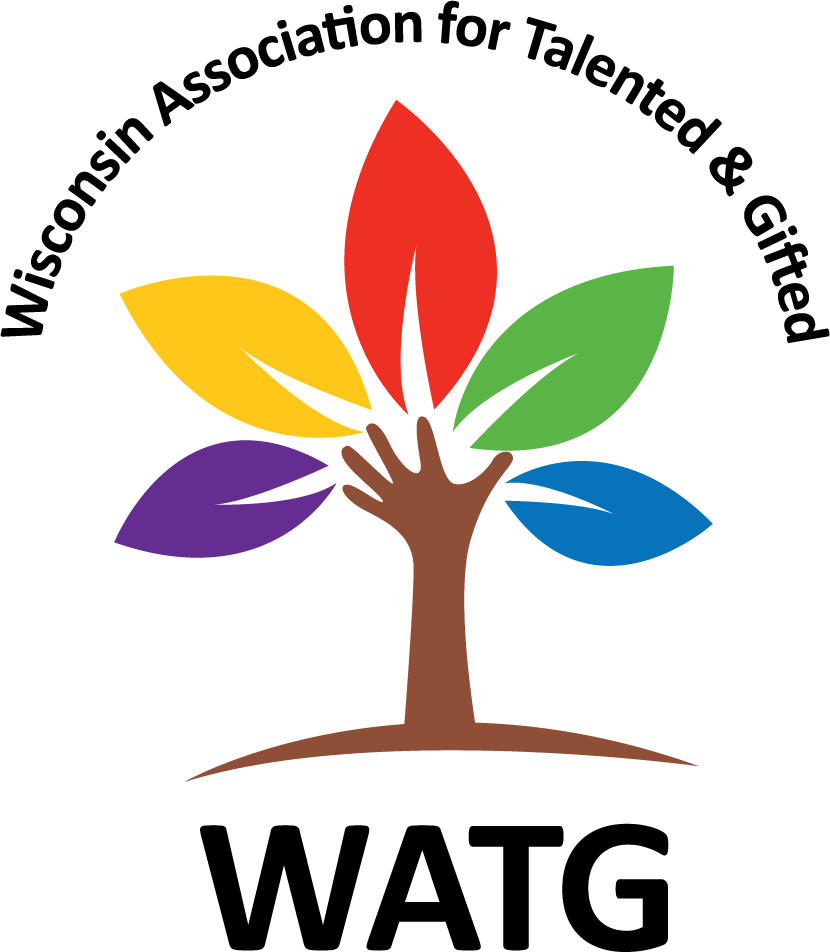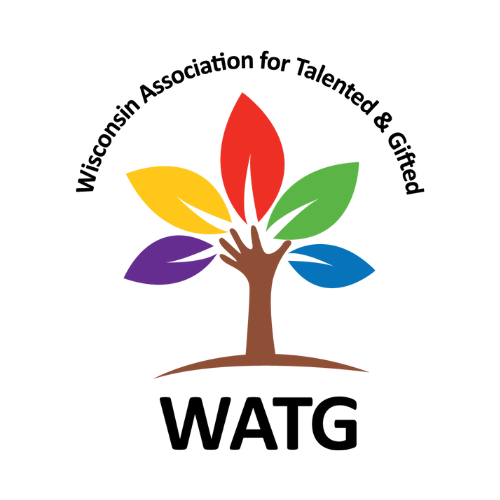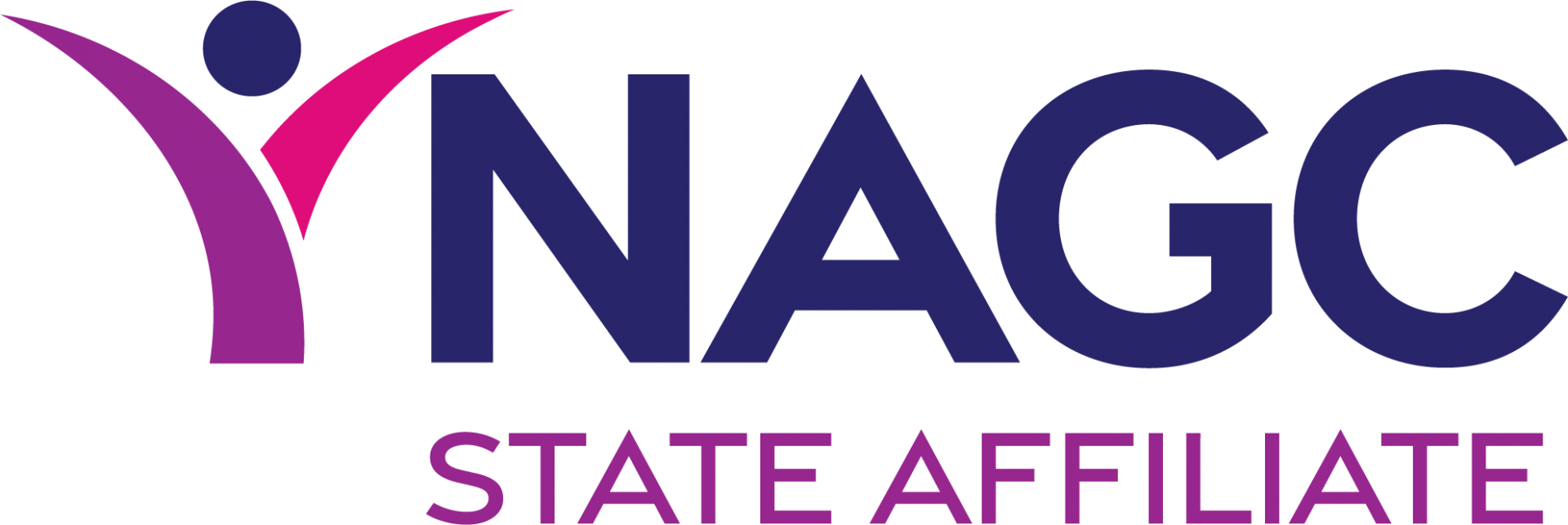Statutes and Rules for Gifted Education in Wisconsin

What is the law about gifted education in Wisconsin?
According to Wisconsin Statute § 118.35, "gifted and talented pupils" are those enrolled in public schools who demonstrate high-performance capabilities in intellectual, creative, artistic, leadership, or specific academic areas and require services or activities not typically provided in a regular school program to fully develop their abilities.
School District Responsibilities
Under Wisconsin Statute § 121.02(1)(t), each school board is mandated to ensure that all identified gifted and talented pupils have access to appropriate programs. Administrative Rule PI 8.01(2)(t)2 further specifies that school districts must:
- Develop a plan and designate a coordinator for the gifted and talented program.
- Identify gifted and talented pupils from kindergarten through 12th grade across the specified areas.
- Use multiple measures for identification, including standardized tests, nominations, rating scales, portfolios, and performance assessments.
- Ensure the identification process is inclusive, considering factors such as economic conditions, race, gender, culture, native language, developmental differences, and disabilities.
- Provide access to appropriate programming without charging tuition.
- Offer opportunities for parental involvement in the identification and programming processes.
What are the five mandated areas of gifted education in Wisconsin?
In Wisconsin, gifted education is guided by Wisconsin State Statute 118.35 and Administrative Rule PI 8.01(2)(t), which mandate that school districts identify and provide appropriate programming for gifted and talented students. The five mandated areas of gifted education in Wisconsin are:
- Intellectual – High-level reasoning, problem-solving, and cognitive ability.
- Academic – Exceptional abilities in specific subject areas such as math, reading, science, or social studies.
- Creative – Original thinking, problem-solving, and innovation in various disciplines.
- Artistic – High-level ability in visual arts, music, drama, or other creative fields.
- Leadership – Advanced interpersonal skills, responsibility, and the ability to influence and guide others.
Wisconsin requires districts to identify students in these five areas and provide them with appropriate services, though the implementation can vary by district.
What can I do if my student is not receiving services?
In Wisconsin, state law mandates that each school board must ensure all gifted and talented pupils have access to appropriate programs. If your student isn't receiving these services, consider the following steps:
- Review District Policies: Familiarize yourself with your school district's policies on gifted and talented education to understand their identification and service procedures.
- Engage with School Personnel: Discuss your concerns with your child's teachers, school counselors, or the district's gifted and talented program coordinator to explore available options.
- Utilize WATG Resources: The Wisconsin Association for Talented and Gifted (WATG) offers resources and support for parents and educators. Our website provides information on advocacy, upcoming events, and helpful links.
- Attend Workshops and Events: Participate in workshops and events focused on gifted education to connect with professionals and other parents. For instance, WATG hosts events like the Madison Area Four Corners Workshop, which includes sessions for gifted students and their caregivers.
- Explore External Programs: Consider supplementary programs outside the school system, such as those offered by universities or educational organizations, to support your child's development.
By proactively engaging with school officials and utilizing available resources, you can advocate effectively for the services your gifted and talented student is entitled to under Wisconsin law.
What is the difference between an IEP and a 504?
An IEP (Individualized Education Program) and a 504 Plan are both designed to support students with disabilities, but they serve different purposes and have different legal requirements. Here's a breakdown of the key differences:
Legal Basis
- IEP: Falls under the Individuals with Disabilities Education Act (IDEA), which provides special education services to students who qualify.
- 504 Plan: Falls under Section 504 of the Rehabilitation Act of 1973, a civil rights law that prevents discrimination based on disability.
Eligibility
- IEP: The student must have one of the 13 specific disabilities listed under IDEA (e.g., autism, speech impairment, learning disability) and require special education services to make progress in school.
- 504 Plan: The student must have a physical or mental impairment that substantially limits one or more major life activities (e.g., learning, walking, concentrating). They do not need special education – only accommodations to access the general curriculum.
Services & Supports
- IEP: Provides special education services, modifications, and related services (such as speech therapy or occupational therapy). It includes measurable goals and progress monitoring.
- 504 Plan: Provides accommodations (e.g., extra time on tests, preferential seating, modified assignments) but does not include special education services or individualized goals.
Who Writes & Implements It?
- IEP: Created by an IEP team, including parents, teachers, special education staff, and administrators. It must be reviewed annually.
- 504 Plan: Created by a 504 team, which usually consists of teachers, counselors, and administrators. It does not require annual reviews but should be updated as needed.
Enforcement & Protections
- IEP: Legally enforceable under IDEA; if a school fails to provide services, parents can file complaints or request a due process hearing.
- 504 Plan: Provides legal protections under civil rights law, and parents can file complaints with the Office for Civil Rights (OCR) if accommodations are not provided.
Which One Does a Student Need?
- If a student requires specialized instruction, an IEP is the right option.
- If a student only needs accommodations to access the curriculum, a 504 Plan is appropriate.
Identification

What are the characteristics of a gifted student?
Gifted students often exhibit characteristics that set them apart from their peers. Here are some common signs to look for:
Cognitive Traits
- Advanced problem-solving skills – Can grasp complex concepts quickly and find creative solutions.
- Exceptional memory – Retains and recalls information effortlessly.
- Rapid learning – Picks up new skills and subjects faster than peers.
- Keen observation – Notices details that others may overlook.
- Curiosity – Asks deep, insightful questions and craves learning.
Academic & Intellectual Traits
- Early reading ability – May read significantly above grade level at an early age.
- Advanced vocabulary – Uses complex words and language structures naturally.
- Strong reasoning skills – Understands abstract concepts well beyond their age.
- Passionate about specific topics – May have intense interests in areas like science, math, history, or the arts.
Social & Emotional Traits
- High sensitivity – Emotionally intense, deeply empathetic, or highly aware of fairness and justice.
- Preference for older peers – May relate better to older students or adults.
- Strong sense of independence and social justice – Likes to do things their own way and can resist authority if they feel restricted.
- Perfectionism – Holds themselves and others to very high standards and may get frustrated when they don't meet them.
Creativity & Imagination
- Divergent thinking – Comes up with unique, innovative ideas.
- Love for storytelling or artistic expression – Enjoys writing, drawing, music, or other creative pursuits.
- Enjoys complex and challenging tasks – Thrives on puzzles, strategy games, and problem-solving activities.
- Keen sense of humor – Sees absurdities and comments on them.
Behavioral Patterns
- Low tolerance for routine – Gets bored with repetitive or simple tasks.
- Energetic mind – Constantly thinking, questioning, or daydreaming.
- Strong sense of humor – Enjoys wordplay, puns, or intellectual jokes.
Not all gifted students exhibit every trait, and some may also struggle with focus, social interactions, or anxiety. A formal assessment from an educator or psychologist can provide a more definitive answer.
How are students identified in Wisconsin schools?
In Wisconsin, students are identified as gifted and talented based on guidelines set by the Wisconsin Department of Public Instruction (DPI). The state follows Wisconsin Statute 118.35, which requires schools to identify and provide appropriate programs for gifted students in five areas:
- General Intellectual Ability
- Specific Academic Areas (math, reading, science, etc.)
- Creativity
- Leadership
- Visual and Performing Arts
Identification Process
Wisconsin schools use a multi-faceted approach to identify gifted students, which may include:
- Teacher and Parent Referrals – Observations of advanced abilities.
- Standardized Test Scores – High performance on tests such as MAP, STAR, iReady, or state tests (Forward Exam).
- Classroom Performance – Exceptional work, advanced problem-solving, or creative output.
- Portfolios – Artwork, writing samples, auditions, or projects demonstrating advanced ability.
- Behavioral Checklists – Tools such as the Renzulli Scales assess characteristics of giftedness.
- Cognitive Ability Tests – Tools such as the CogAT or NNAT, which measure reasoning and problem-solving skills.
Services for Gifted Students
Wisconsin does not mandate specific programs, but requires schools to provide services based on student needs. These may include:
- Differentiated instruction (adjusted lessons within the regular classroom).
- Cluster grouping (grouping gifted students together for part of the day).
- Acceleration (skipping grades or taking advanced coursework in a specific subject area).
- Enrichment programs (extra projects, clubs or co-curriculars, or special learning opportunities).
If you suspect a student is gifted, you can request an evaluation through the school's gifted and talented coordinator or administration. Schools are required to continually assess and support students once identified.
Can a student be gifted in subjects other than reading and math?
Yes! A student can be gifted in many areas beyond reading and math. Wisconsin Department of Instruction recognizes giftedness in five areas, and students may excel in one or more of these:
- General Intellectual Ability – Exceptional reasoning, problem-solving, and learning speed across multiple subjects.
- Specific Academic Areas – Advanced skills in subjects like science, social studies, or foreign languages, not just reading and math.
- Creativity – Original thinking, innovative problem-solving, artistic talents, or unique perspectives.
- Leadership – Strong ability to influence, organize, or motivate peers, often showing maturity and responsibility.
- Visual & Performing Arts – Talent in areas like music, dance, theater, or visual arts (drawing, painting, sculpting).
Giftedness can appear in many ways, and a student might not fit traditional academic expectations but still have extraordinary talents in other domains. If a child excels in an area outside of math and reading, schools should still provide enrichment and support.
Who can refer a child for gifted identification?
In Wisconsin, a child can be referred for gifted identification by:
- Teachers – Based on classroom observations, performance, and assessments.
- Parents/Guardians – If they notice advanced abilities or exceptional talents at home or in the community.
- School Staff – School counselors, school psychologists, administrators, or gifted and talented coordinators.
- Peers – In some cases, other students may recognize a peer's unique abilities.
- Self-Nomination – Older students may advocate for themselves if they feel they a need more challenging coursework.
Since Wisconsin law requires schools to identify and provide services for gifted students, any of these referrals should initiate an evaluation process. If you're considering a referral, contacting the school's gifted and talented coordinator or an administrator is a good first step.
Where can I go to receive services for my child (testing, counseling, etc.)?
In Wisconsin, there are several resources for gifted identification, testing, and support services, including school-based programs and private options. Here are some key places to consider:
School District Services
- Start with Your Child's School: Contact the school's gifted and talented coordinator, teacher, or principal to request testing or services.
- School Psychologists: Many schools offer cognitive assessments like the CogAT (Cognitive Abilities Test) or NNAT (Naglieri Nonverbal Ability Test).
- Multi-Tiered Systems of Support (MTSS)/Response to Intervention (RTI): Schools may provide advanced learning plans or differentiation based on classroom performance.
Private Testing & Educational Services
If the school does not provide testing or if you want an independent evaluation, consider private options:
- Wisconsin Center for Academically Talented Youth – Offers resources and assessments.
- Private Psychologists & Educational Testing Centers – Many offer IQ and achievement testing, such as the WISC-V (Wechsler Intelligence Scale for Children).
- Talent Searches – Programs like the Northwestern Center for Talent Development (CTD) or Johns Hopkins Center for Talented Youth (CTY) offer testing and enrichment.
Counseling & Social-Emotional Support
- Wisconsin Association for Talented and Gifted (WATG) – Provides resources, advocacy, and guidance.
- Social & Emotional Needs of the Gifted (SENG) Community Groups – SENG Community Groups (SCG) are in-person or virtual groups for gifted individuals, parents of gifted and twice-exceptional children, or professionals in gifted education.
- Therapists Specializing in Gifted Children – Some counselors focus on the emotional and social challenges of giftedness, such as perfectionism or anxiety.
- Local or Online Support Groups – Connecting with other parents of gifted children can be helpful. Wisconsin Association for Gifted & Talented has a WATG Parents Facebook Group.
Academic & Enrichment Programs
- SOAR – Summer Opportunity with Advanced Rigor (SOAR) offers summer camps for gifted youth in grades 3-8.
- University of Wisconsin Youth Programs – Offers summer camps and advanced coursework.
- Wisconsin Virtual Academy & Online Learning – Advanced courses for gifted students.
- Duke TIP (Talent Identification Program) – Offers above-grade-level testing and enrichment (check for availability).
- Badger Precollege (formerly WCATY) – Offers precollege academic couses online and summer camps.
Other

My child is gifted, now what?
Discovering your child is gifted can be both exciting and overwhelming. It's important to provide them with appropriate challenges while ensuring they have a balanced and fulfilling childhood. Engage with your child's school to explore enrichment opportunities, differentiated instruction, or acceleration options. At home, nurture their interests by providing resources, experiences, and support. WATG offers several parent opportunities throughout the year, including a parent strand during our annual conference, parent SENG groups, and a private parent Facebook group. The NAGC offers Parent Tip Sheets that cover various topics, including understanding giftedness and supporting your child's development.
Parenting and educating gifted children and adolescents is both a joy and a challenge. Enjoy the journey, seek help when you need it, and learn along the way!
How do I engage my students in the early years of learning?
Engaging young gifted learners requires strategies that cater to their advanced abilities while considering their developmental stages. For both parents and teachers, it's essential to provide stimulating and challenging activities that promote play, discovery, inquiry, critical thinking, and creativity. Incorporating open-ended questions, hands-on projects, and opportunities for exploration can foster a life-long love for learning. Additionally, understanding the unique social and emotional needs of gifted children is crucial. The National Association for Gifted Children (NAGC) offers resources on early childhood education strategies.
What are some other gifted and talented organizations to check out?
Beyond the National Association for Gifted Children (NAGC) and the Wisconsin Association for Talented and Gifted (WATG), several organizations support gifted and talented education:
- Supporting Emotional Needs of the Gifted (SENG): Focuses on the social and emotional aspects of giftedness.
- Davidson Institute: Offers resources and support for profoundly gifted young people.
- Hoagies' Gifted Education Page: A comprehensive resource for parents and educators of gifted children.
Additionally, NAGC has other state affiliates that provide local support and resources. You can find a list of these affiliates on the NAGC website.
What does 2E mean?
The term "2E" stands for "twice-exceptional." It refers to students who are both gifted and have disabilities such as dyslexia, ADHD, or autism spectrum disorder. These individuals possess high potential in one or more areas while also facing challenges that can impede their learning. Like many other gifted children, 2e kids may be more emotionally and intellectually sensitive than children of average intelligence. The Davidson Institute notes that 2E students are among the most under-identified and underserved population in schools. Recognizing and supporting 2E students involves addressing both their advanced capabilities and their areas of difficulty.
Common characteristics of twice exceptional students include:
- Outstanding critical thinking and problem-solving skills.
- Above average sensitivity, causing them to react more intensely to sounds, tastes, smells, etc.
- Strong sense of curiosity.
- Low self-esteem due to perfectionism.
- Poor social skills.
- Strong ability to concentrate deeply in areas of interest.
- Difficulties with reading, writing, or math due to cognitive processing deficits.
- Behavioral problems due to underlying stress, boredom and lack of motivation.
For more information, check out our Members Only Area for insights into supporting twice-exceptional students.
What research is available for acceleration?
Educational acceleration is a well-researched and effective strategy for meeting the needs of gifted students. Studies have shown that acceleration, whether through grade-skipping, early entrance, or subject-specific advancement, can lead to positive academic and social outcomes. The NAGC emphasizes that acceleration is one of the cornerstones of exemplary gifted education practices, with more research supporting this intervention than any other in the literature on gifted individuals. In 2020, WATG authored Advanced and Accelerated Learning in Wisconsin: Moving Wisconsin Students Forward. This detailed report will help you navigate the questions and myths that surround acceleration in our state and beyond.




